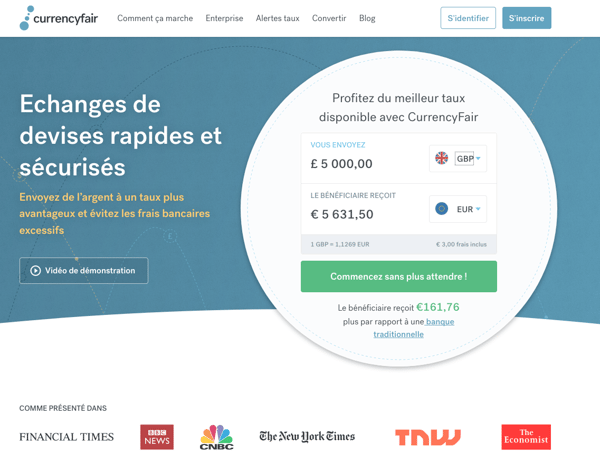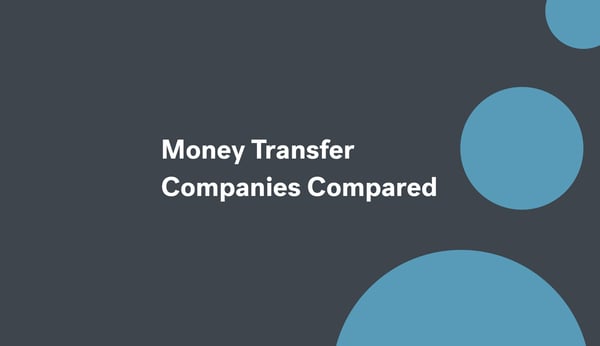The news that Google has changed the way performance reviews are conducted might be a small shift in big tech terms, but it could impact how much Google employees make as well as the overall allure of a job with parent company Alphabet.
If you're a Google or Amazon employee currently, it's worth noting that you're entitled to exclusive benefits with CurrencyFair. Whether you need to remit the sale of shares or send money overseas, you can access fee-free transfers and exclusive rates.
For the 163,000 Google employees globally, of which there are over 8,000 at EU HQ in Ireland, formal reviews are a crucial tool for setting personal and professional objectives, monitoring performance, and negotiating salary rises. However, with just 53% of Google employees officially rating their bi-annual reviews as "time well spentâ€, not to mention articles in the press revealing that unofficially employees hated twice-yearly reviews, change and innovation could not come soon enough.
How Google used to conduct performance reviews
Previously, Google favoured the bi-annual performance review, the go-to model for large corporations (especially big tech) and the system already used by LinkedIn and Twitter, although some even extended to a quarterly review schedule.
The bi-annual review followed the structure of the celebrated Intel Objectives and Key Results (OKR) system, in which individual objectives feed into the manager and team goals.
The new system for gauging employee performance
In May 2022, Google decided to move from bi-annual to annual reviews. These adopt the Googler Reviews and Development (GRAD) system which focuses on "employee development, learning and progression throughout the yearâ€.
Under the new GRAD review methodology, Google employees can achieve one of five possible ratings. Promotions will still happen twice a year and Google claims that the new system will give employees more chances for promotion and career development.
Why the change?
What's behind the shift towards fewer reviews? Blame the Great Resignation. A staggering 4.5 million workers quit their jobs in March 2022, and even big tech is not immune to shifting dynamics between employees and HR. Just 29% of IT employees surveyed by Gartner said they had "high intent"to remain in their jobs. Employee burnout, lack of career progression, and poor recognition have all forced global corporations such as Alphabet to look again at their structures for nurturing and retaining talent.
One of the recurring bugbears for already busy tech workers is performance management, which sapped 1.8 million person-hours per year at Adobe, for example. Big tech employers such as Alphabet might enjoy the first pick of graduate and emerging talent, but they must avoid the tendency to stifle and constrain creativity and innovation with excessive demands on proving performance.
In the case of Google, executive leadership are willing to recognise that employees deliver "significant impact"throughout the year and have resolved to give teams more breathing room for product development. In turn, less preparation time from managers and teams needs to be allocated to the review process. That doesn't mean the targets and objectives have disappeared. Most managers will continue to provide formal and informal feedback throughout the year.
The impact on big tech
How does Alphabet's decision compare with the other global players who have helped establish Ireland as a powerhouse in big tech? It's in step with Meta, which operates a one-review-per-year schedule, and follows the lead of Microsoft, Accenture and Deloitte, among others, in phasing out the somewhat gladiatorial competitive rankings with a more employee-focused structure.
The system pioneered by Amazon through its Focus program (since likened to Fight Club), which explicitly aimed to weed out 6% of its employees per year, is harder to sustain at a time when empowered employees are quitting big tech in their thousands.
Today's Fortune 500 company cannot take anything for granted and we should expect to see a greater emphasis on evolving talent rather than relentlessly demanding proof of performance. It's worth pointing out too that Google enjoys a 4.5/5 rating as an employer on Glassdoor and 4.3/5 on Indeed.
One of the most noticeable benefits of the GRAD system for employees is that promotions are now made as a group. That replaces the burdensome process of filling out a lengthy form and seeking approval from managers and co-workers in order to secure promotion.
It will be interesting to monitor whether other big tech companies in Ireland that haven't already switched to the annual review system favoured by Google now decide to follow suit. As of May 2022, Google employees can at least look forward to spending more time on innovation and creative thinking and less time reviewing performance.
If you're a Google or Amazon employee currently, it's worth noting that you're entitled to exclusive benefits with CurrencyFair. Whether you need to remit the sale of shares or send money overseas, you can access fee-free transfers and exclusive rates.
This information is correct as of June 2022 This information is not to be relied on in making a decision with regard to an investment. We strongly recommend that you obtain independent financial advice before making any form of investment or significant financial transaction. This article is purely for general information purposes. Photo by Fernando Hernandez on Unsplash.












